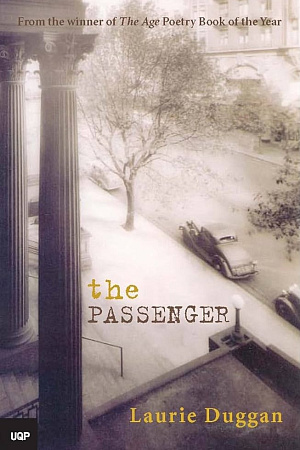Memoirs
Allen & Unwin, $79.99 hb, 397 pp
The master welder
At his death in 1977, Robert Lowell was considered one of the greatest and most influential American poets of the century. He had absorbed the academic formalism of the Fugitives and New Critics, but had gone beyond it with a humanising anger, the suffering visions of a manic-depressive. Among the Confessional Poets – as W.D. Snodgrass, Anne Sexton, Sylvia Plath and others had come to be called – he was loftier, more prodigious and prolific. Seamus Heaney, who outgrew Lowell’s influence to become a figure of global importance, called him our ‘master elegist / and welder of English’. Not wielder, but welder. Lowell forged his poems, putting words together like pieces of steel. Another critic called his early style ‘imbricated’ for its packed masonry of sound.
So it is curious to reread Lowell now and consider his fading legacy. As early as 2003, the poet James Fenton observed that ‘the work of the most famous poet of his day has undergone a partial eclipse’. Many readers, myself among them, can admire Lowell’s poetry without really loving it. The work doesn’t move me, as the best poems by his friend Elizabeth Bishop do. His most anthologised poem, ‘Skunk Hour’, feels dated with its reference to a ‘fairy decorator’. I prefer other works, from ‘The Quaker Graveyard in Nantucket’ to ‘Memories of West Street and Lepke’ and ‘Waking Early Sunday Morning’. His best poem fusing history and social criticism is ‘For the Union Dead’, which ends, ‘Everywhere / giant finned cars nose forward like fish; / a savage servility/ slides by on grease.’ It is Lowell’s Howl – not as funny as Ginsberg’s, but more biting.
Continue reading for only $10 per month. Subscribe and gain full access to Australian Book Review. Already a subscriber? Sign in. If you need assistance, feel free to contact us.
















Leave a comment
If you are an ABR subscriber, you will need to sign in to post a comment.
If you have forgotten your sign in details, or if you receive an error message when trying to submit your comment, please email your comment (and the name of the article to which it relates) to ABR Comments. We will review your comment and, subject to approval, we will post it under your name.
Please note that all comments must be approved by ABR and comply with our Terms & Conditions.